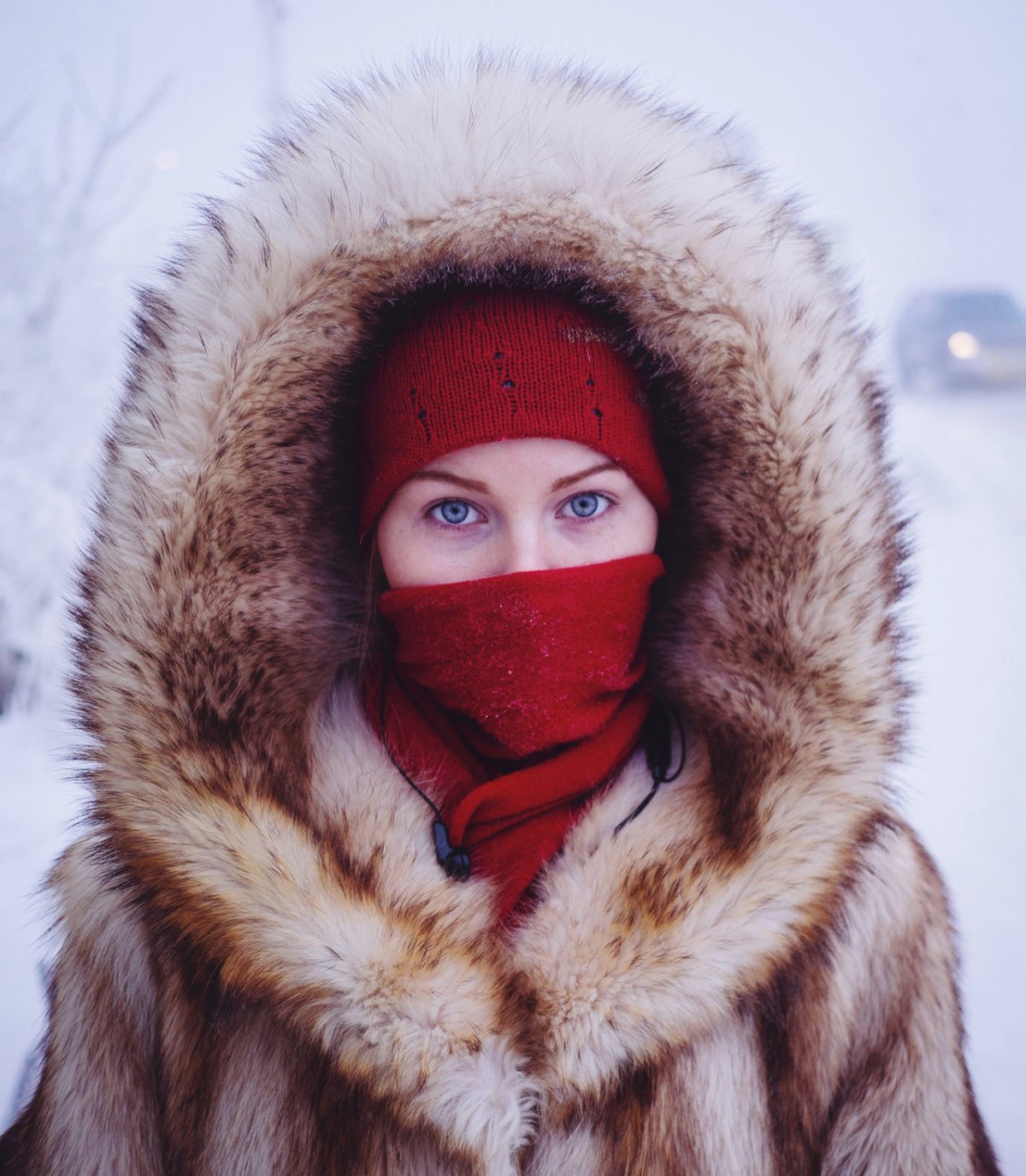Humans are resilient, hardworking creatures.
And there’s perhaps nowhere where that’s more evident than in the tiny village of Oymyakon, Russia, regarded by most as the coldest permanently inhabited place on earth.
Temperatures average around -58 degrees Fahrenheit during the winter months, with the record low reaching -96.16 degrees Fahrenheit in 1924.
Adventurer and photographer Amos Chapple visited the village, as well as Yakutsk, its nearest city center.
Chapple spent a total of five weeks in the region, documenting everyday life in these harsh conditions, as well as the people who call the area home.
Amos Chapple started his journey in Yakutsk, the capital of the Sakha region of northeastern Russia. It is generally regarded as the coldest capital city in the world.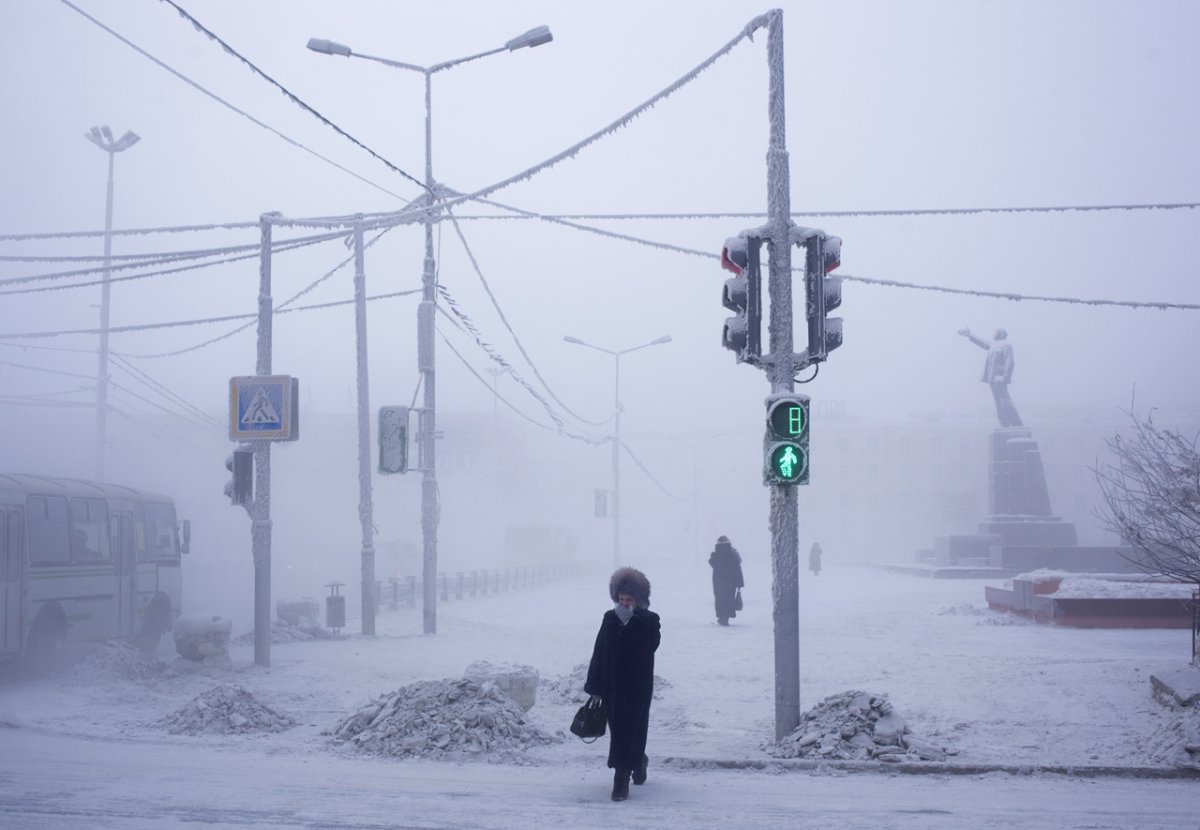
The city has a population of about 300,000, and during winter, temperatures average around -30 degrees Fahrenheit.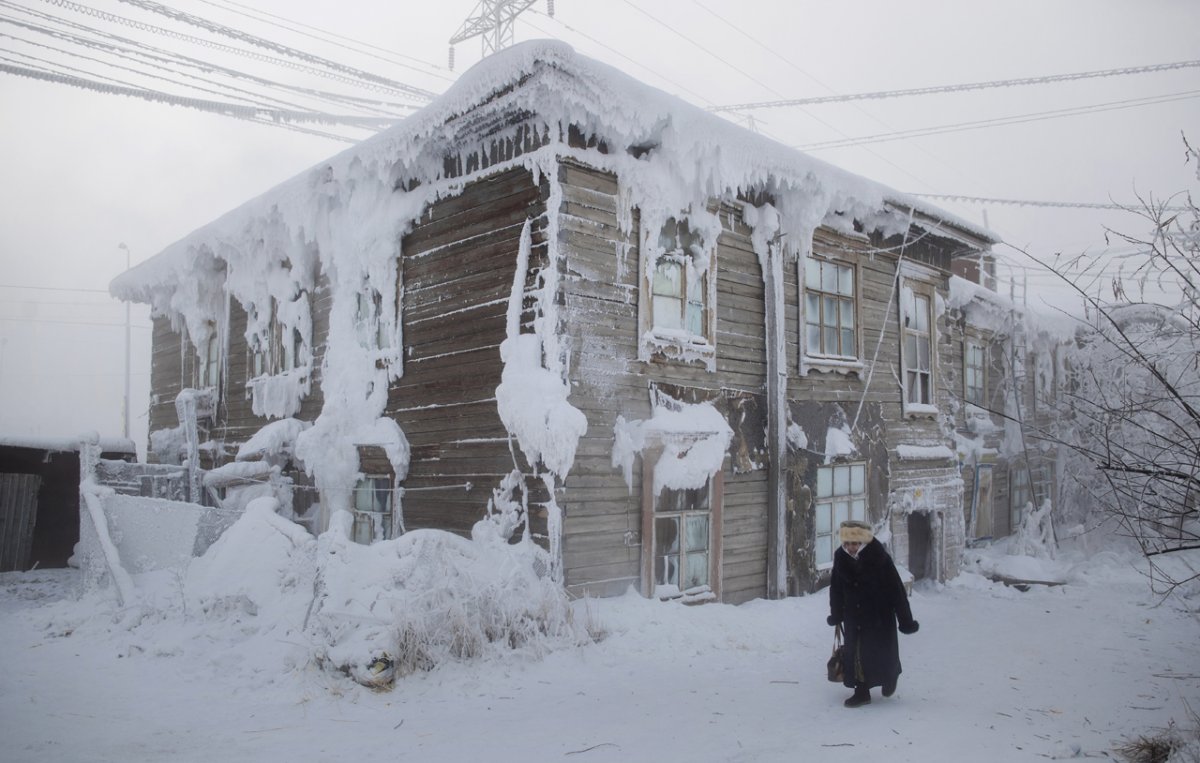
Still, Chapple told Business Insider that the residents of the city were wonderful, “friendly, worldly locals, and magnificently dressed.”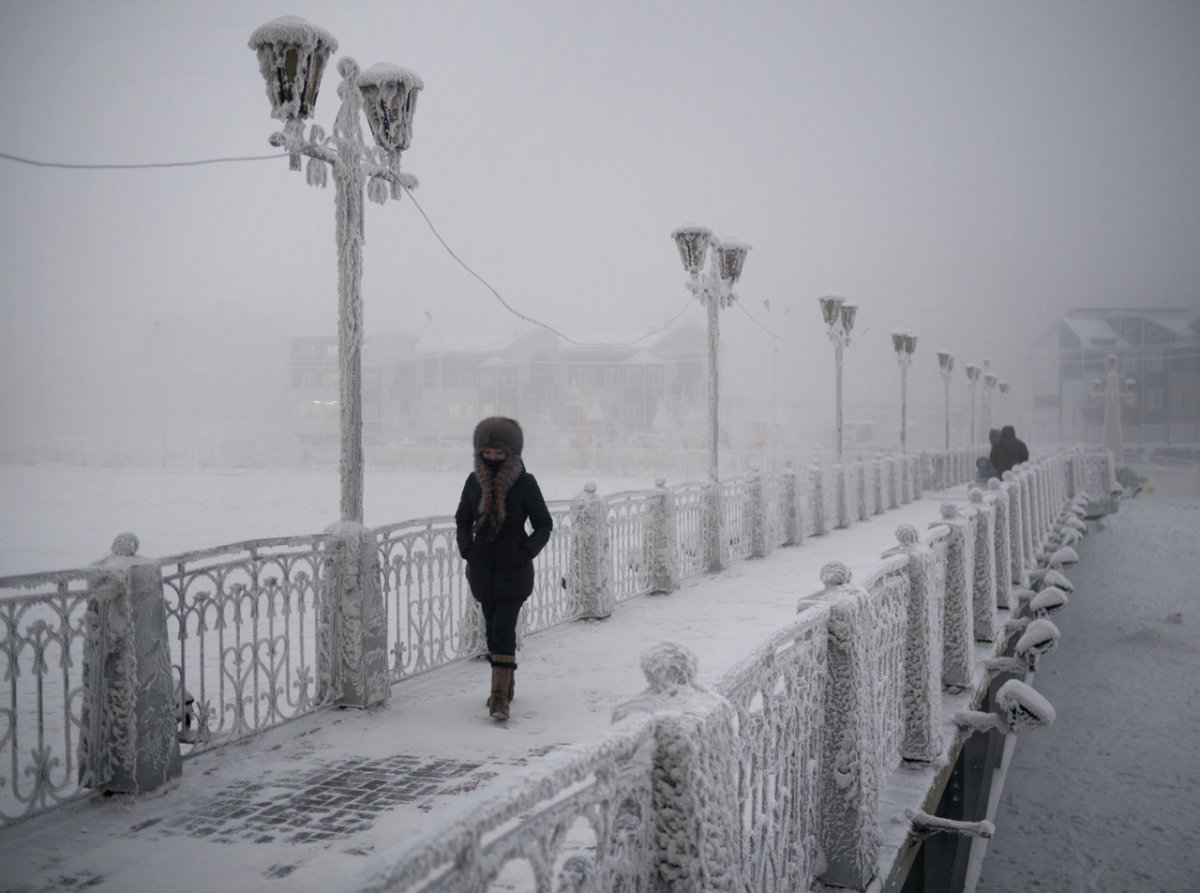
How do locals deal with the extreme cold? “Russki chai, literally Russian tea, which is their word for vodka,” Chapple told the Weather Channel.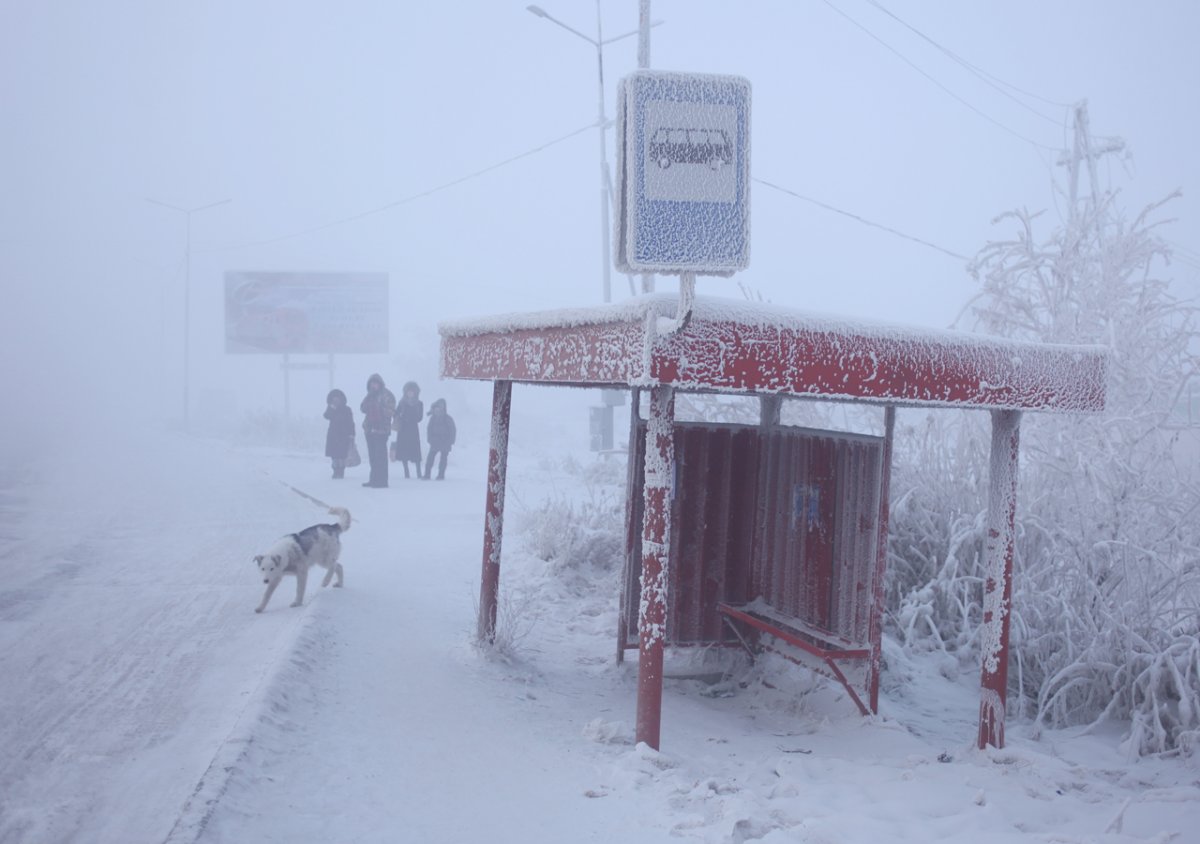
Chapple stayed in a small guesthouse in Yakutsk before befriending locals and being invited into their home. “I tried to cook meals for them as thanks, but it’s pretty hard to put together a plate of nachos in deep Siberia,” Chapple said.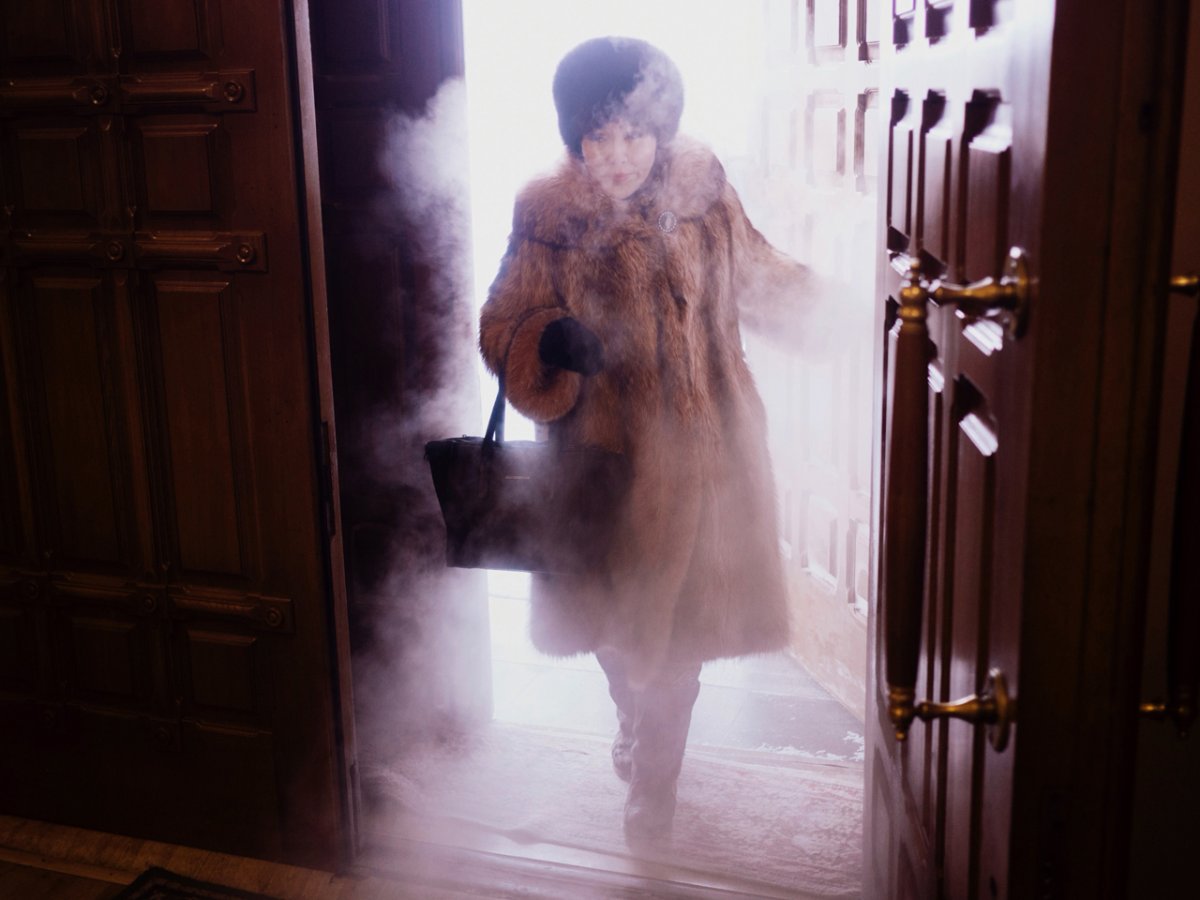
A strong diamond trade has provided a “diverse and healthy economy” in Yakutsk, Chapple said.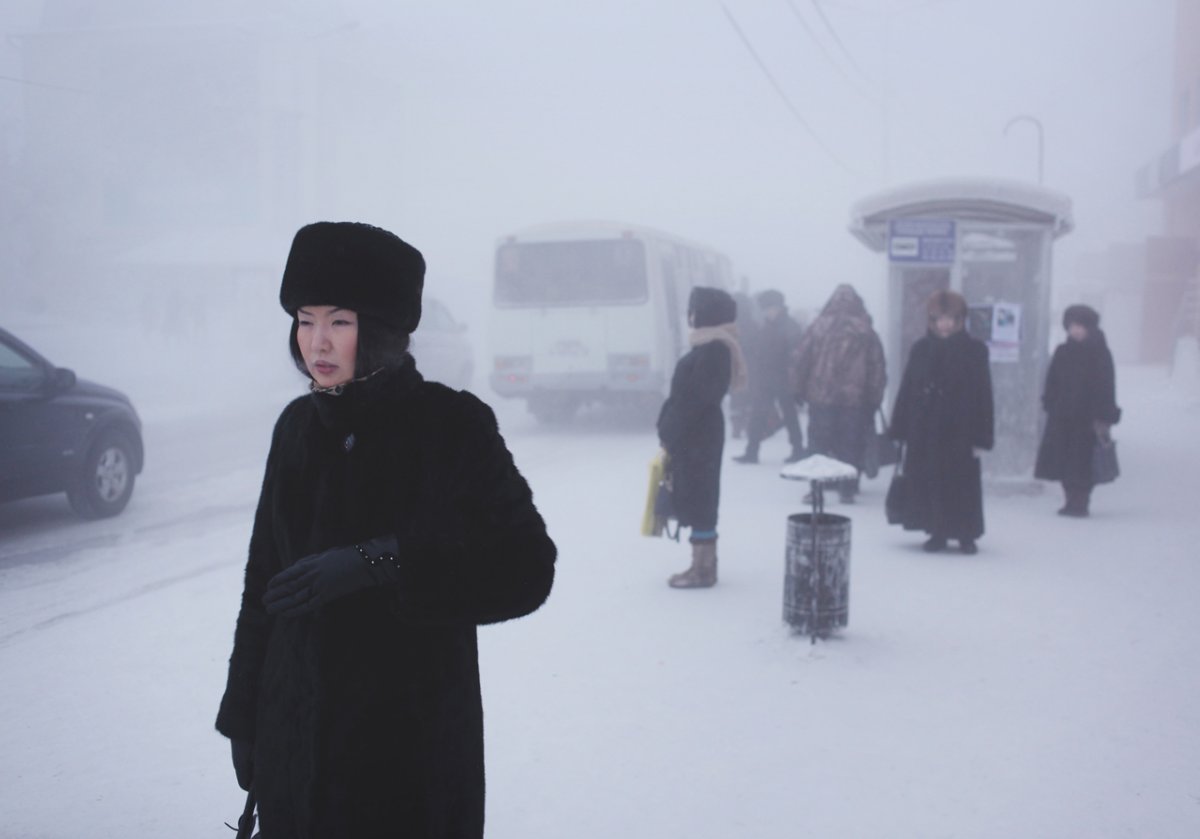
The effects of the Cold War are felt less in these areas, as ethnic Yakuts are “far more outward-looking than Russians, and don’t carry the sense of wounded pride in the collapse of empire,” Chapple said.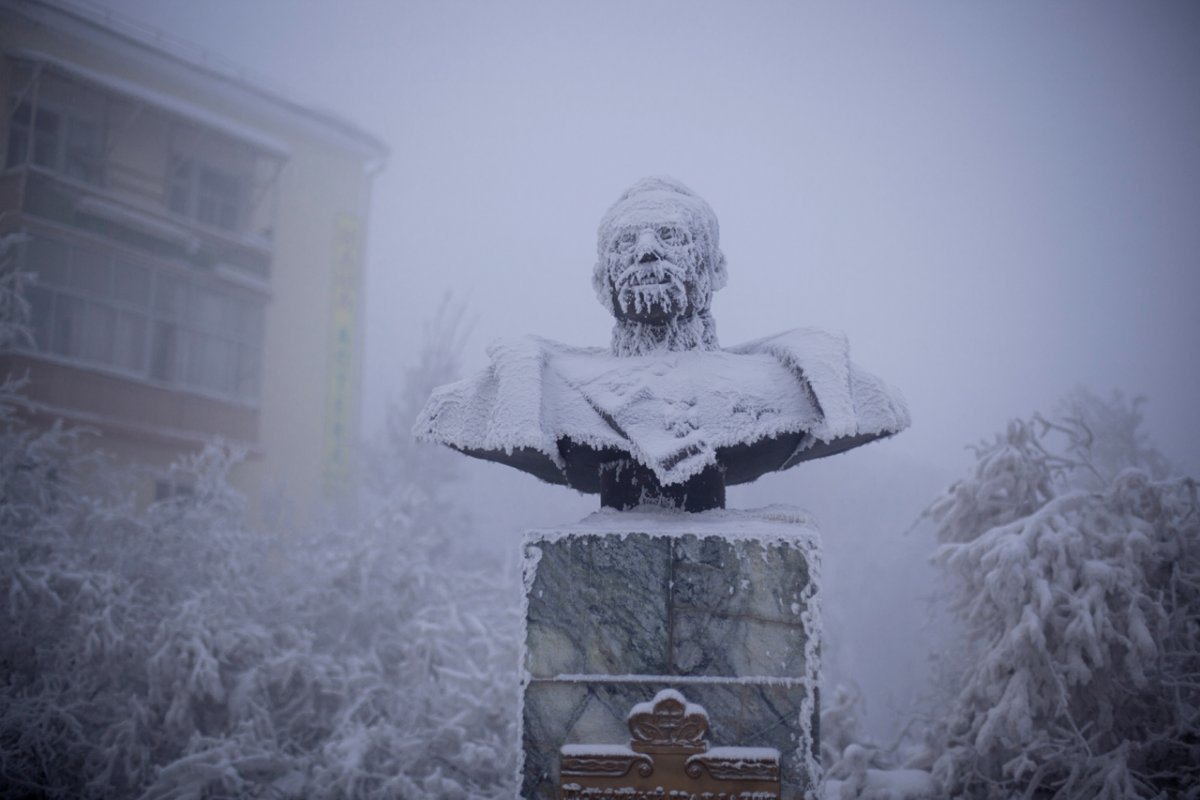
Yakutsk is the gateway to Oymyakon, widely regarded as the coldest inhabited town on the planet. It takes two days to get there, traveling down a barren and isolated stretch of road. Chapple first had to hitch a ride to a halfway point on the road, where he was stranded for two days.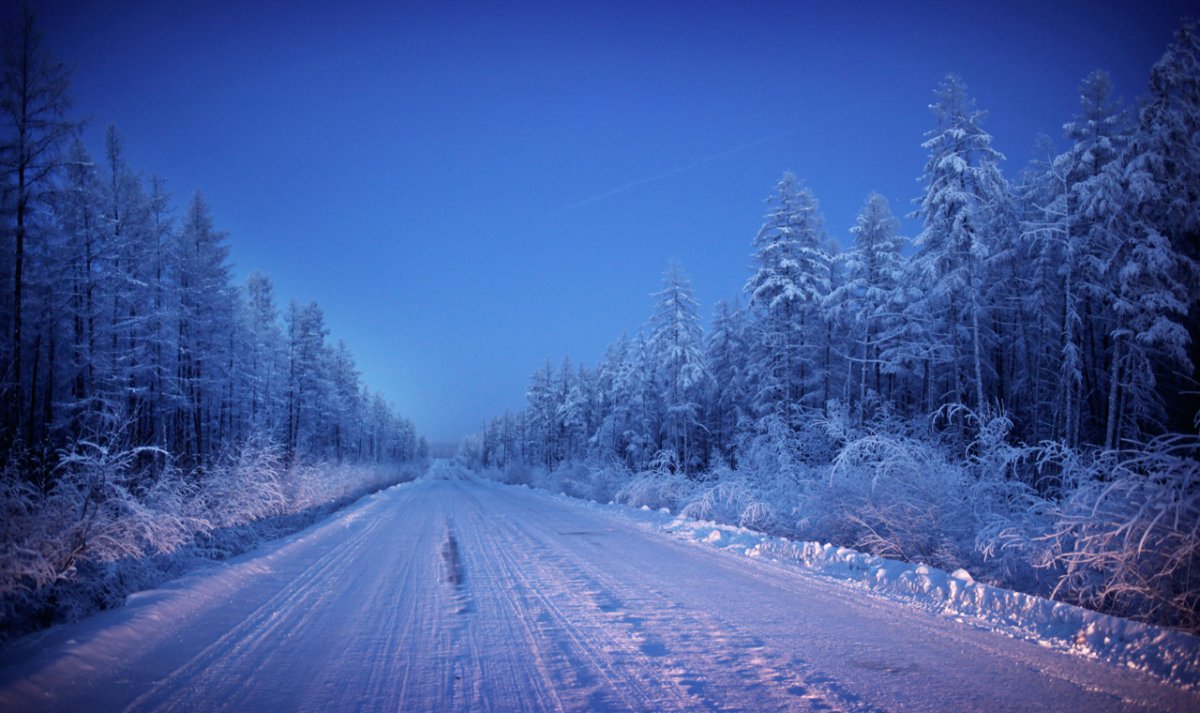
Because cars driving in such low temperatures must be kept running at all times, gas stations along the route stay open 24 hours a day. “Workers in the isolated petrol stations of the region work two weeks on, two weeks off,” Chapple said.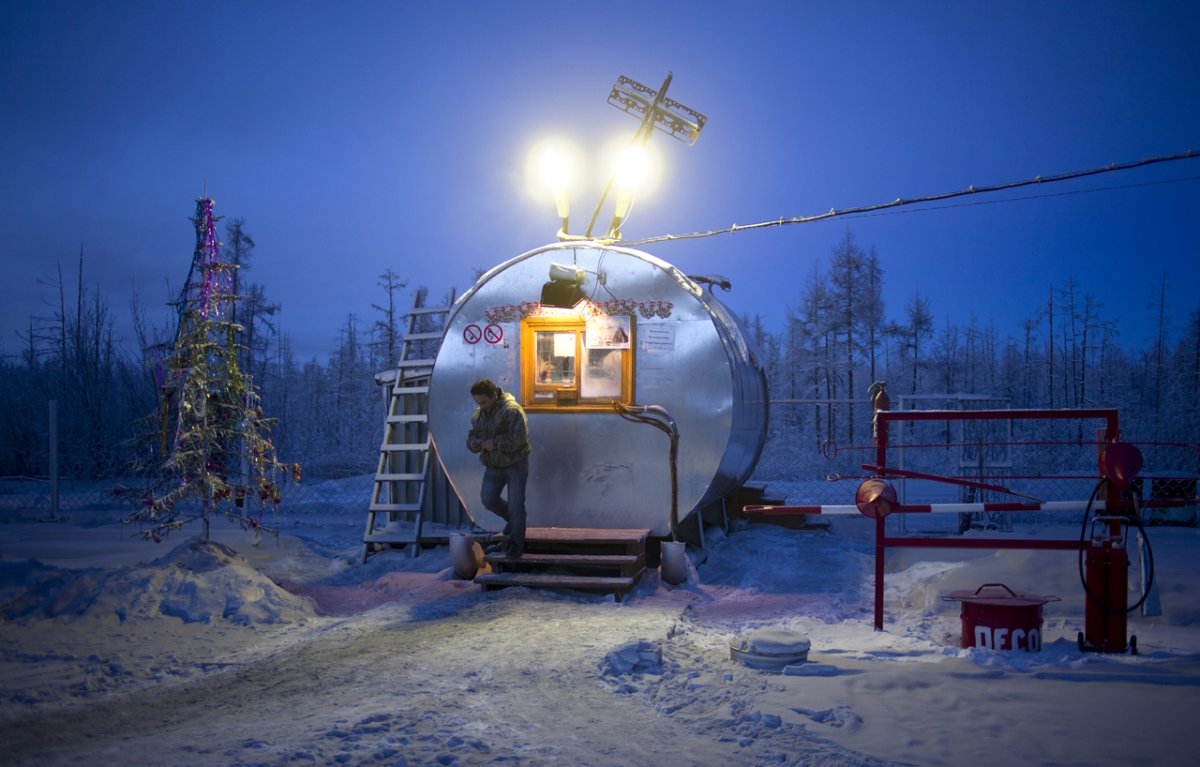
Chapple was stranded for two days in a tiny, isolated guesthouse known as “Cafe Cuba,” located in the frozen wasteland along the road. He survived on reindeer soup and hot tea while waiting for another car to pick him up and finish the journey.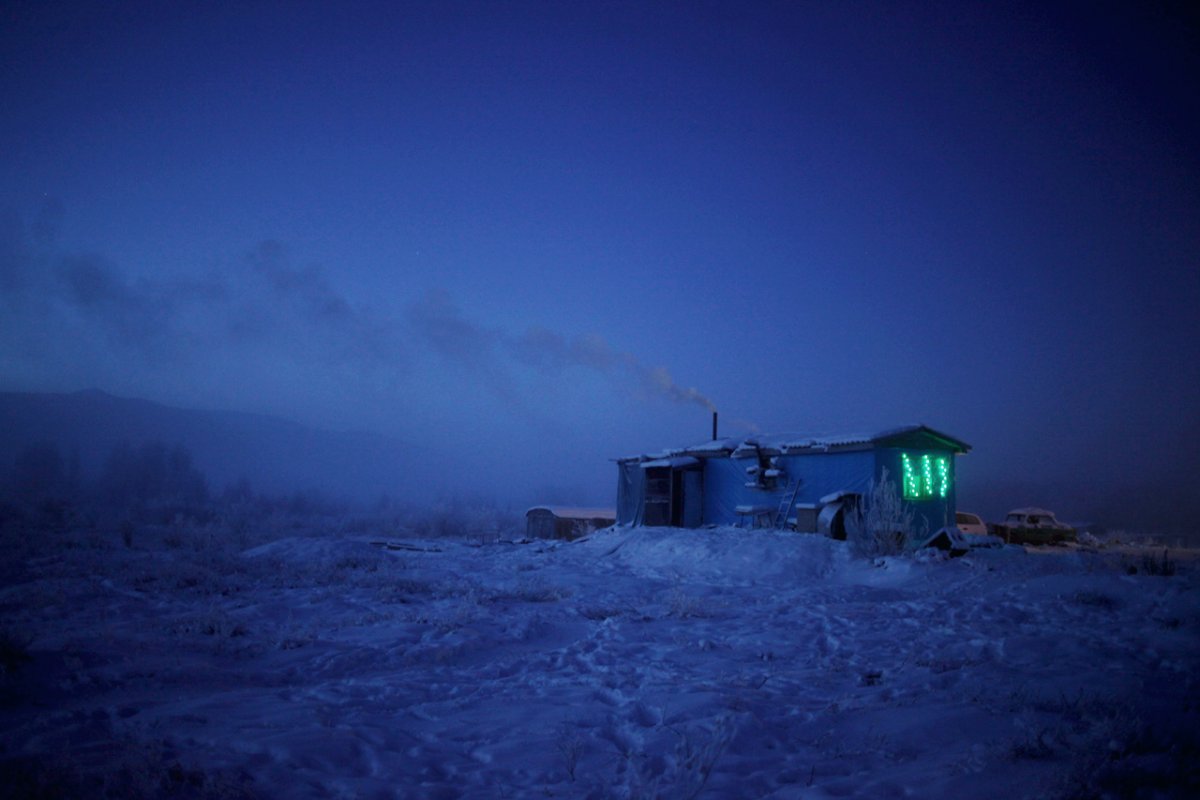
“The guys I ended up getting a lift with wavered between hospitable and weirdly threatening. I ate frozen horse blood and macaroni with their family before being dropped off in Oymyakon,” Chapple said. The communist-era monument near the entrance of the town marks the record-breaking temperature of -96.16 degrees Fahrenheit, recorded in the village in 1924. The sign reads, “Oymyakon, the Pole of Cold.”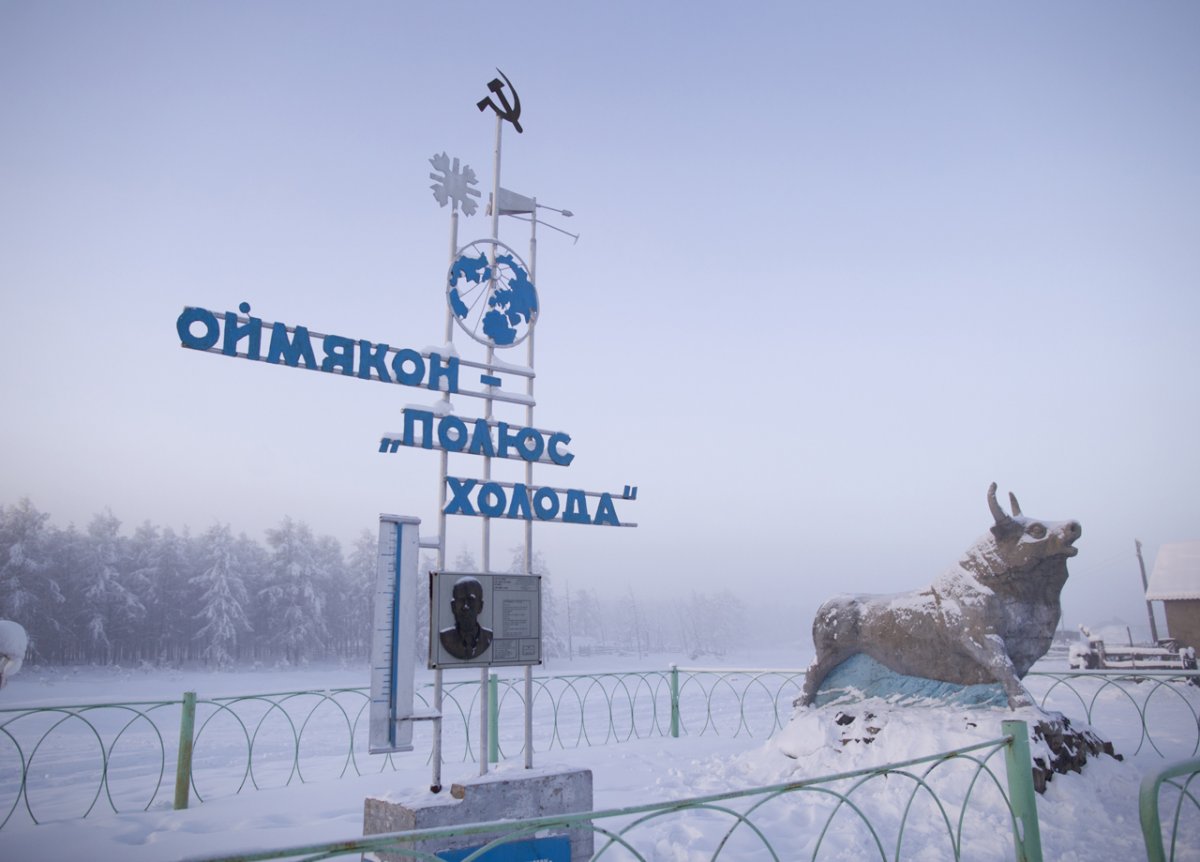
Today, the town averages -58 degrees Fahrenheit in the winter months. In the Even language spoken in Siberia, Oymyakon means “unfrozen water,” believe it or not. It is thought to reference the thermal springs in town that reindeer herders used to visit.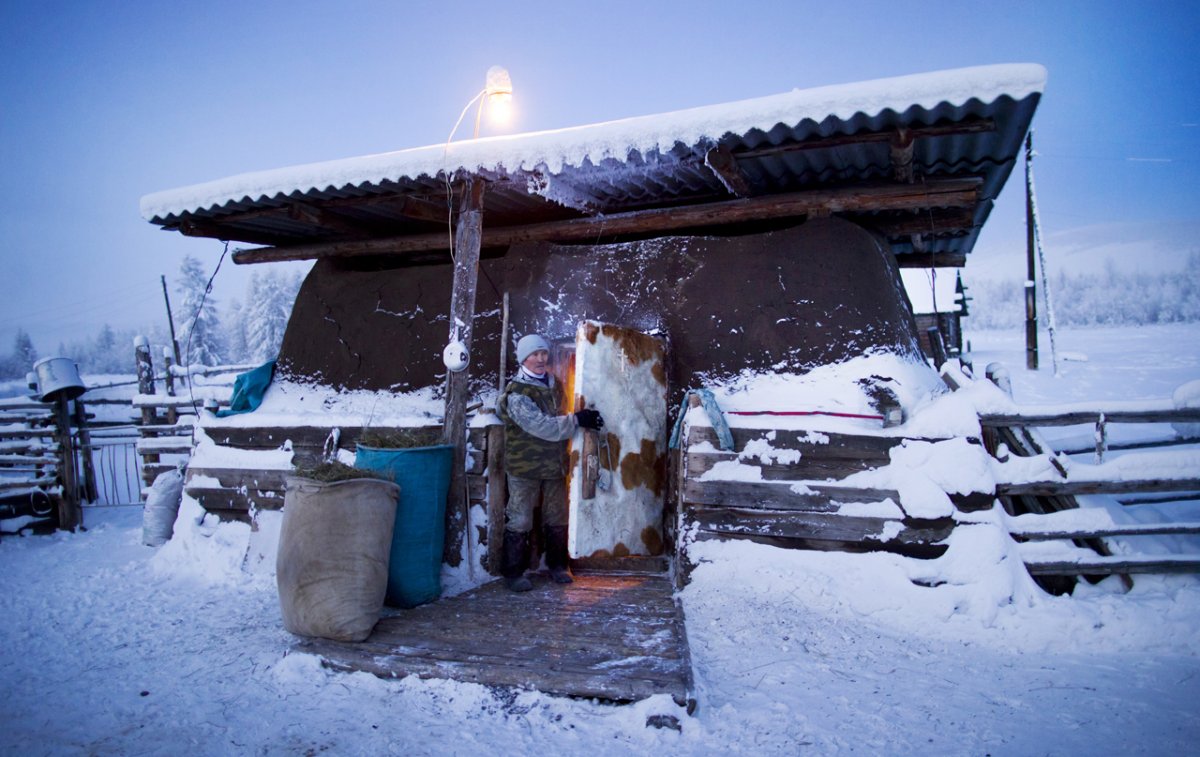
In the town, Chapple was taken aback by the immediate and extreme effects of the cold temperatures. “I remember feeling like the cold was physically gripping my legs. The other surprise was that occasionally my saliva would freeze into needles that would prick my lips,” Chapple told the Weather Channel. Chapple says a full day in this environment was “exhausting.”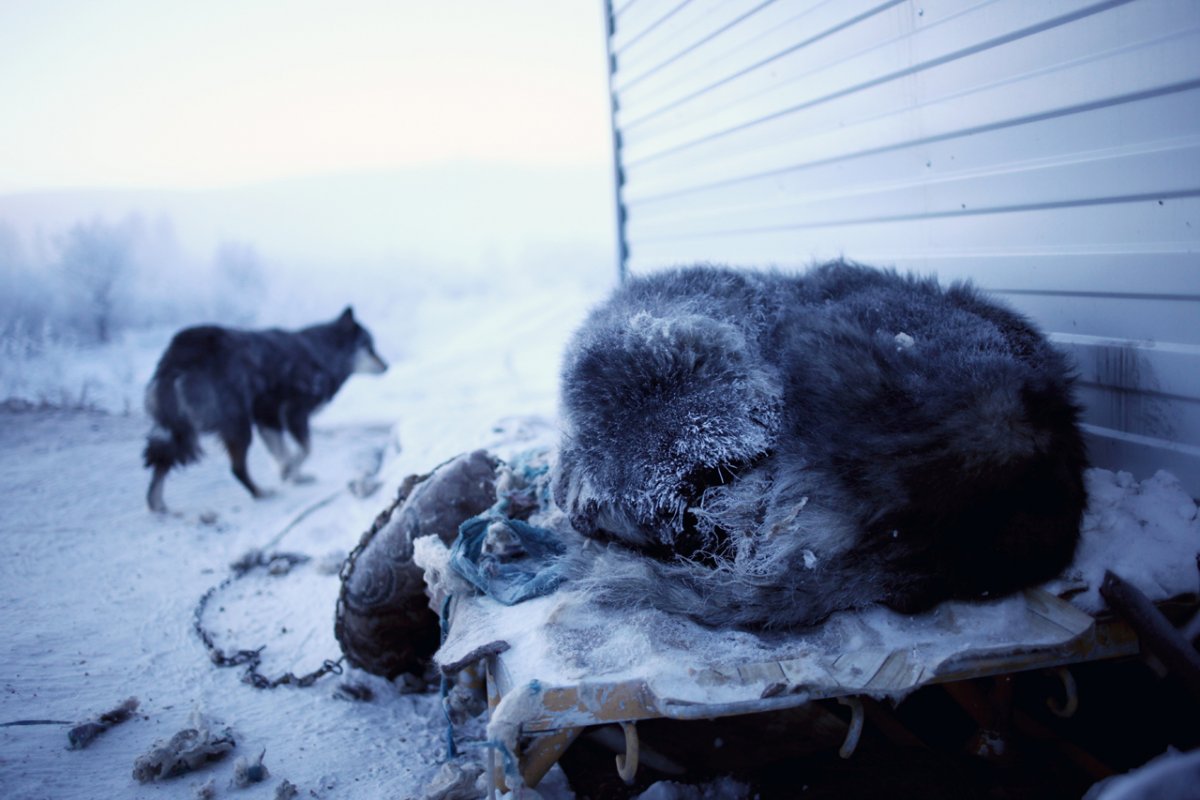
Using a camera was equally difficult. “Breath-mist was as thick as cigar smoke and so I had to hold my breath when taking a picture,” Chapple said. Focusing the camera lens became laborious as well, as the cold began to take grip on its mechanics.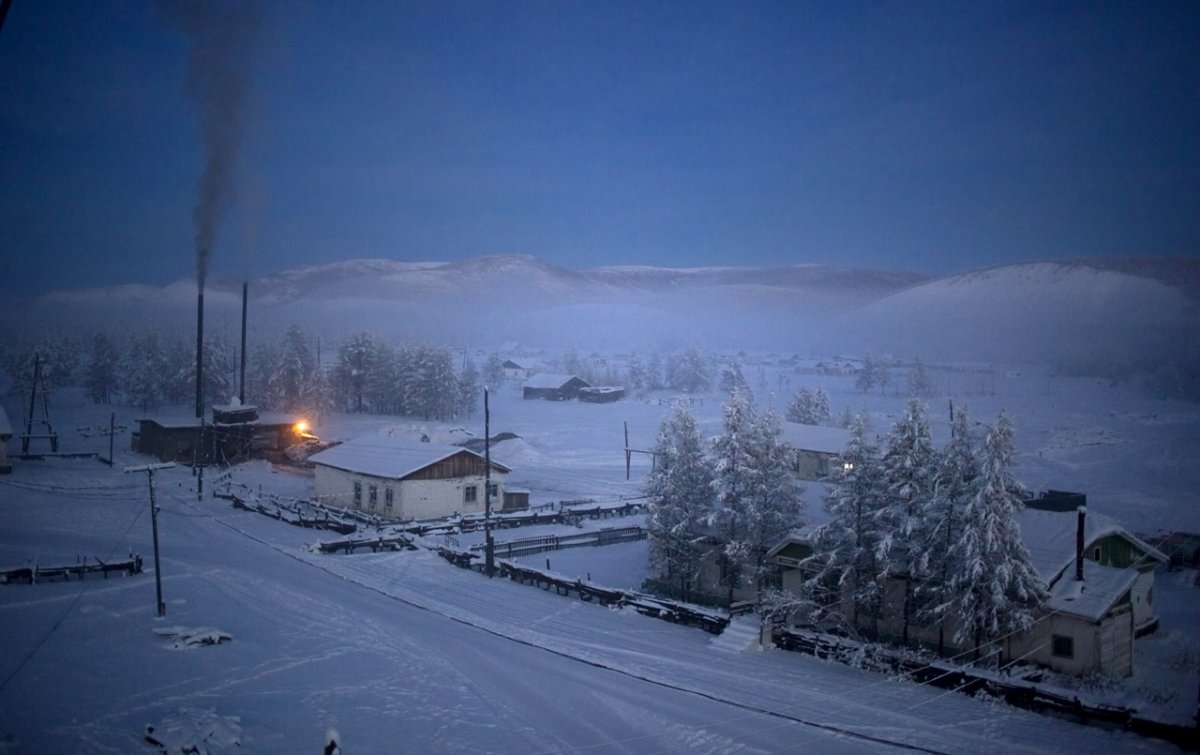
The completely frozen ground in the area makes it impossible to run water pipes into the village’s houses. Instead, outhouses must be used. The run from the house to the bathroom outside is a torturous one.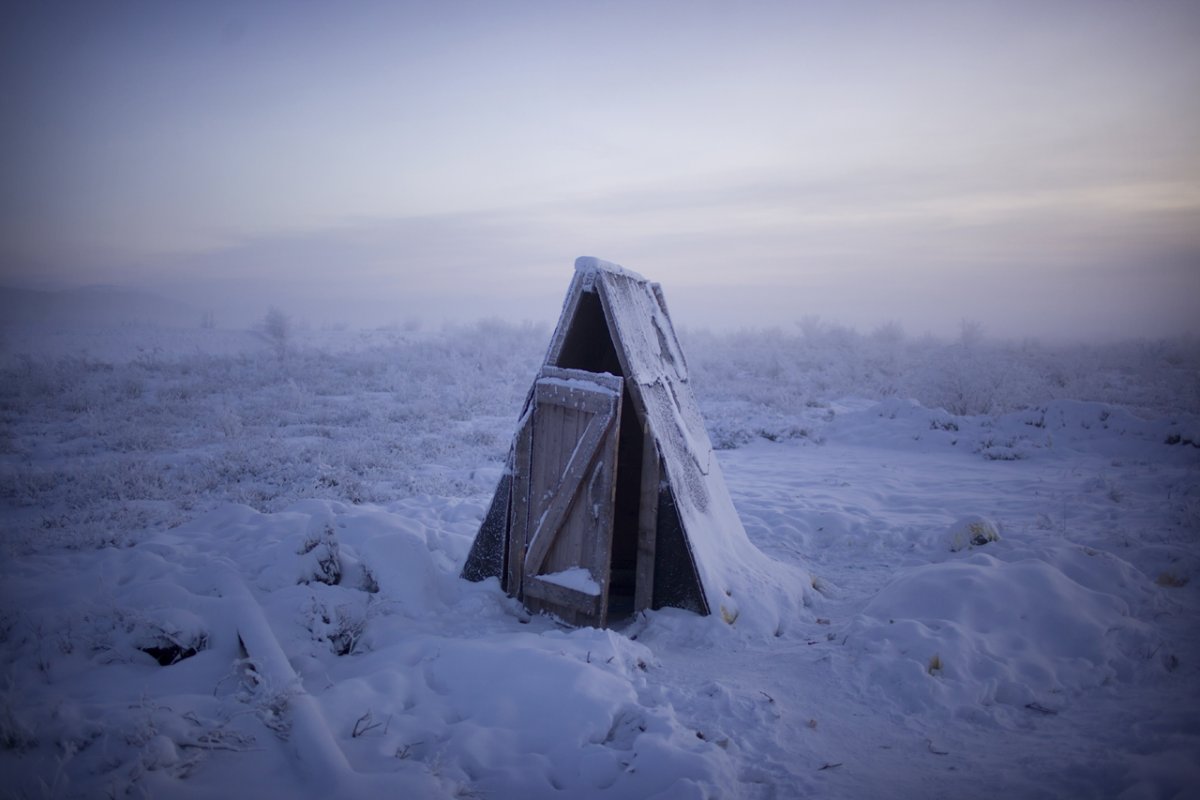
Burying the dead also becomes difficult in Oymyakon due to the frozen ground. Prior to burials, large fires must be lit to warm the soil.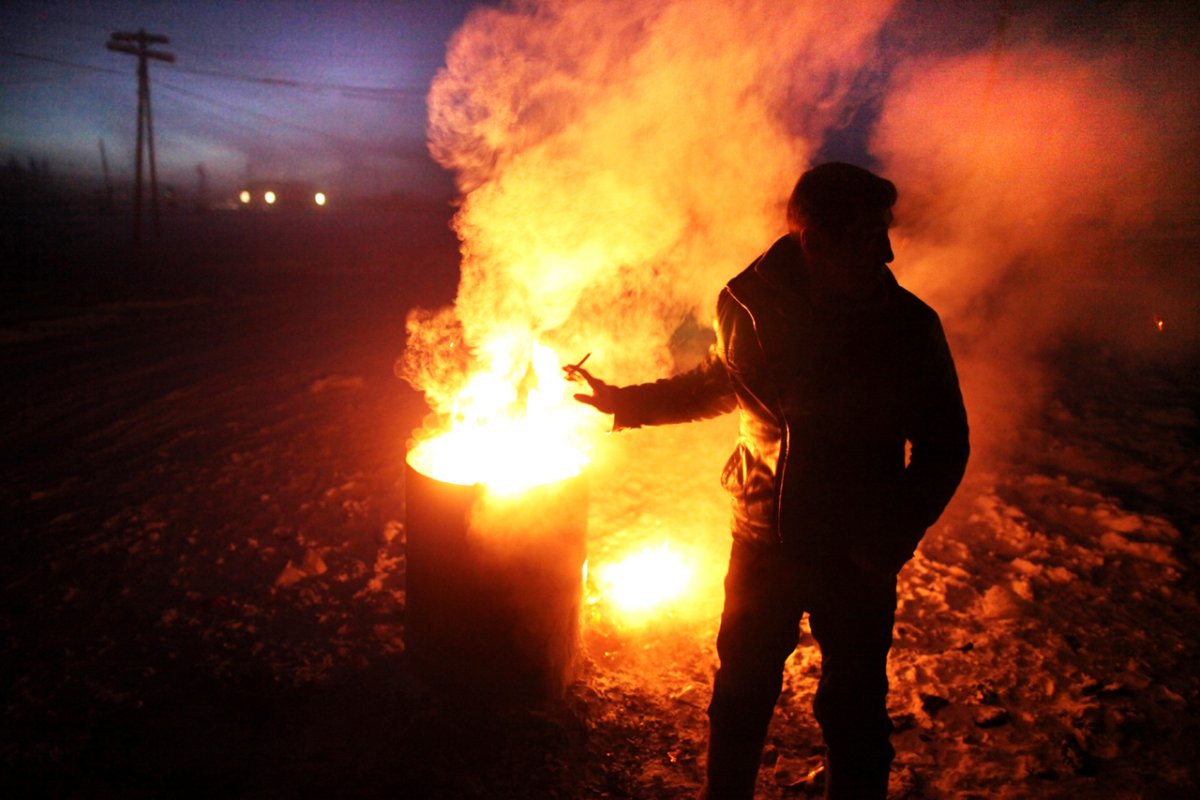
Chapple says he expected the villagers to be excited to meet newcomers. Instead, he found it hard to meet people. “The only people outside were either dashing between houses with their mitts clasped to their faces, or were drunk and looking for trouble,” he told Business Insider.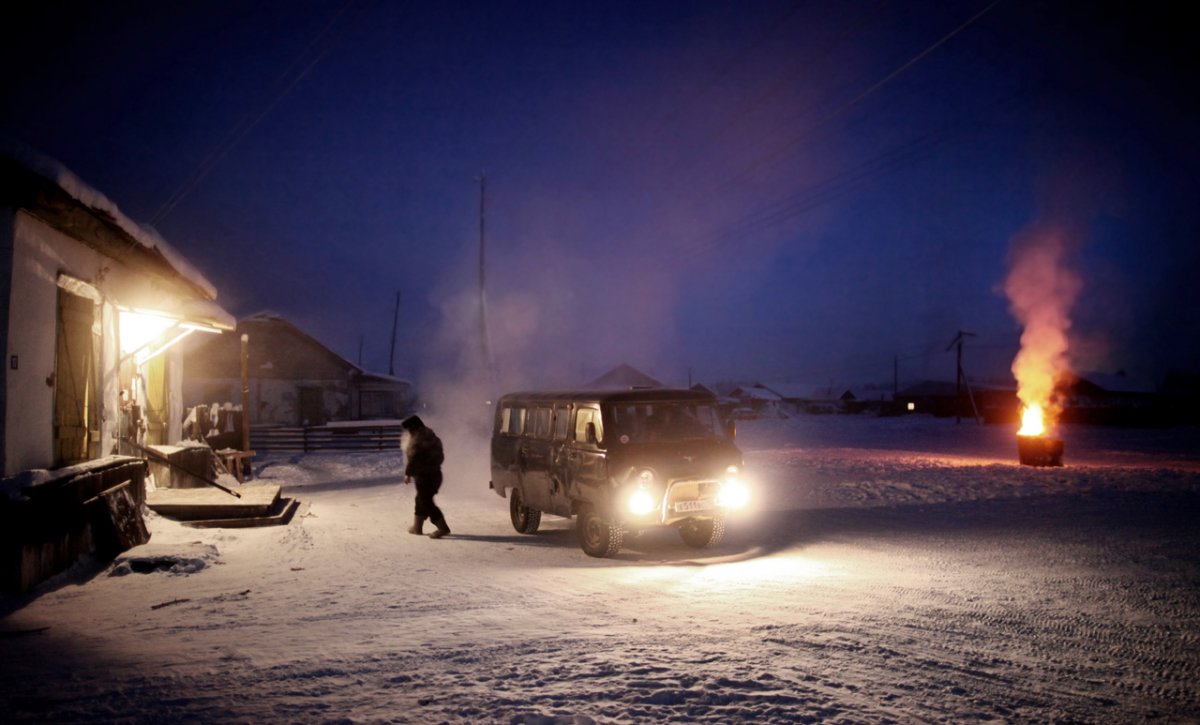
Because the ground is too cold to grow vegetables, people in Oymyakon rely on animal husbandry or municipal work, such as at the heating plants in town seen below, for income.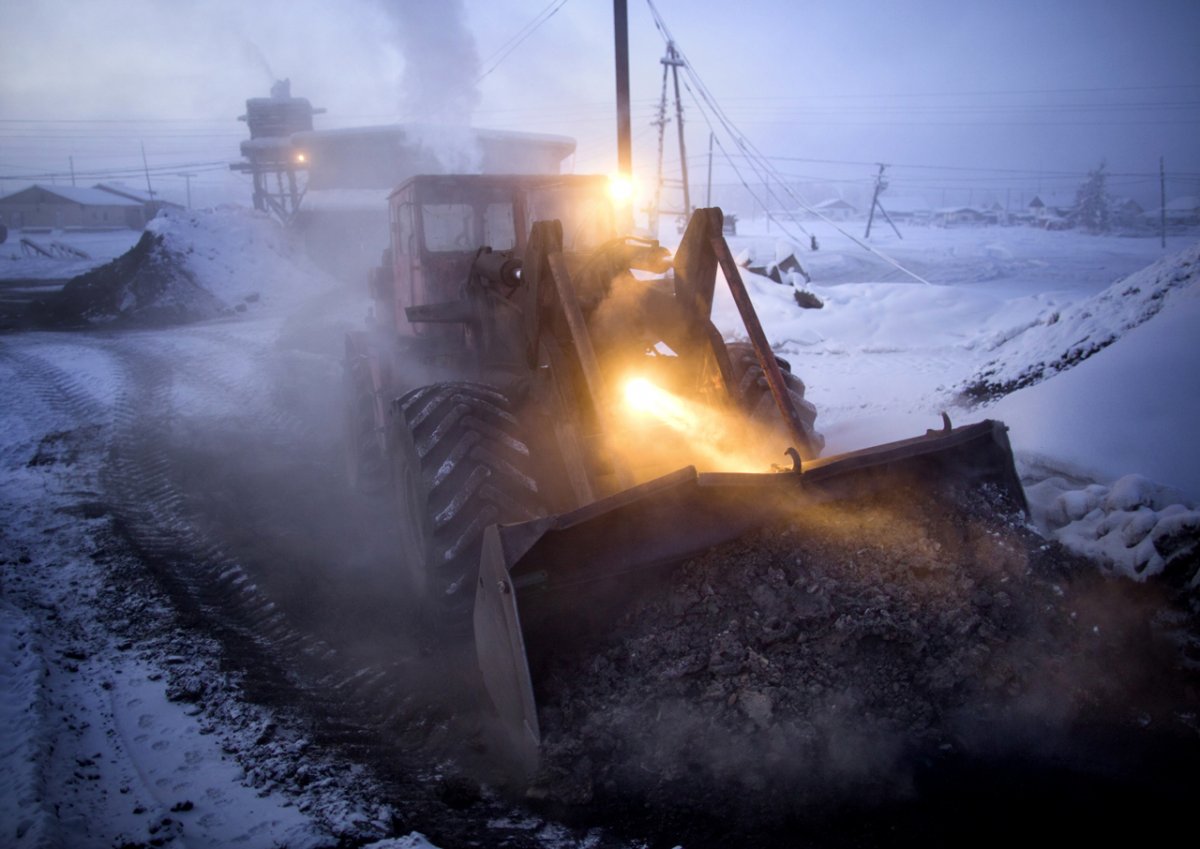
This work also informs their eating habits. Much of what they eat is frozen raw fish, like salmon or whitefish, and even horse liver. Mostly, though, they survive on meat soup.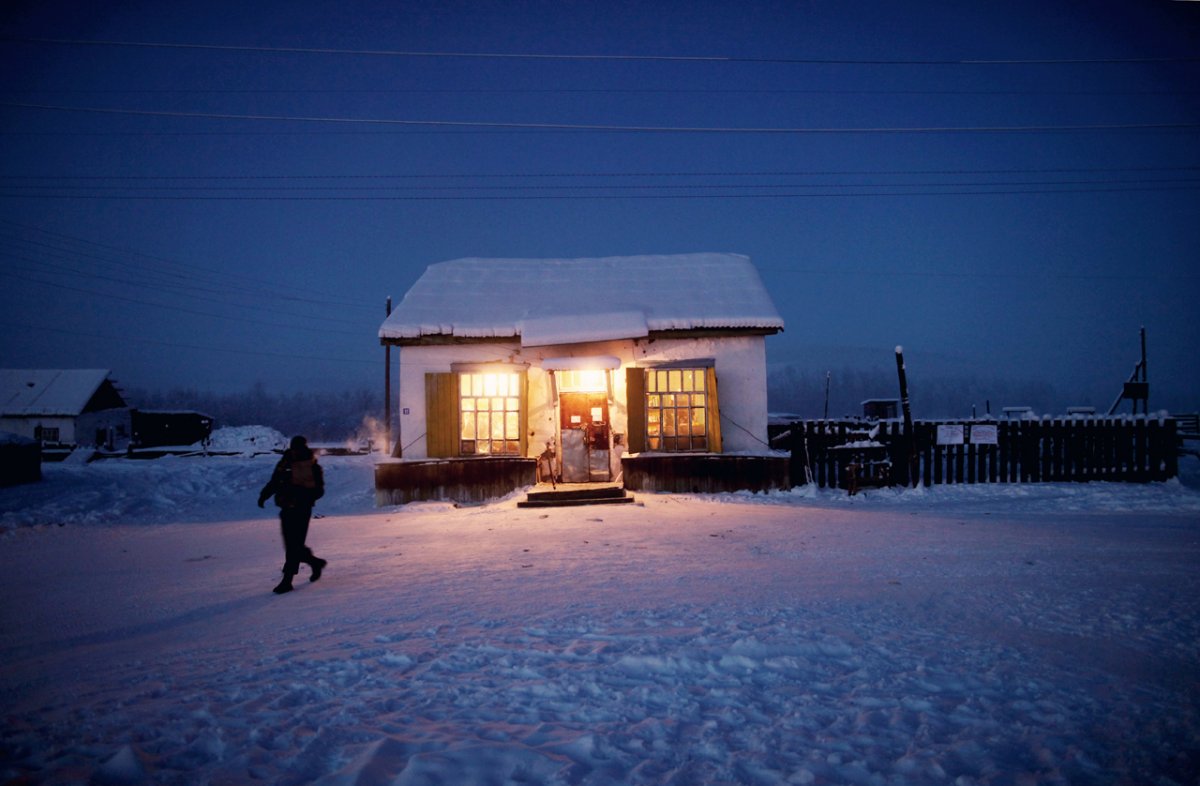
The residents of the town identify strongly with their surroundings and history as ethnic Yakutians. Chapple said that “life rolls on much like anywhere else, but with an eye constantly on the thermometer. Below -58 degrees Fahrenheit and things start to shut down.”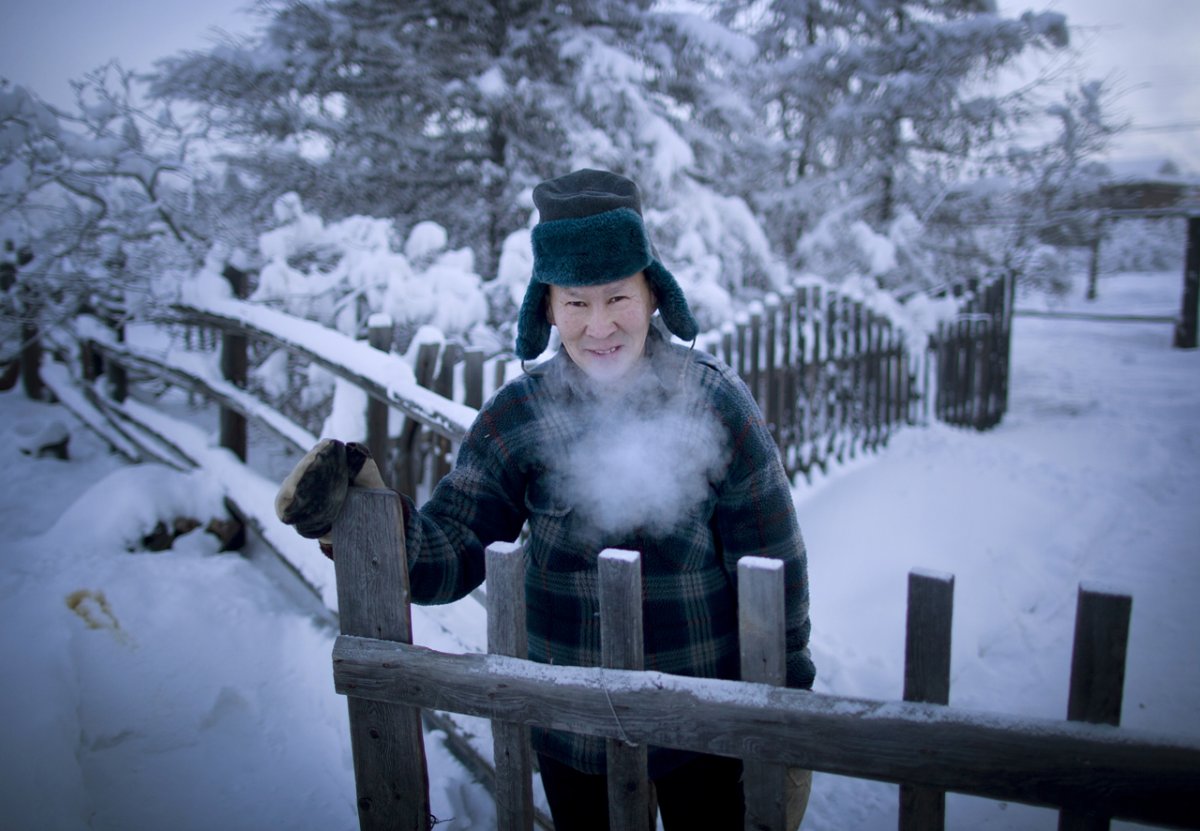
Photo by Amos Chapple

